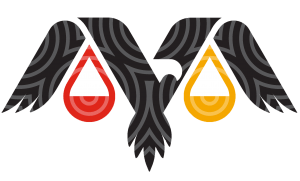5 August 2022

This week, the Andrews Government introduced the Monitoring of Places of Detention by the United Nations Subcommittee on Prevention of Torture (OPCAT) Bill 2022 into the Victorian Parliament. The draft laws are an important measure to facilitate the upcoming visit by the United Nations’ Subcommittee on Prevention of Torture (SPT) to Australia in October. The SPT will be inspecting places of detention across the nation.
Although this is a welcome development, the Andrews Government has been playing catch up on prison monitoring, and has otherwise done little to implement its ongoing obligations pursuant to the UN’s anti-torture treaty – OPCAT. It must do more to ensure best-practice oversight of the state’s prisons, youth prisons, police cells and other places of detention – beyond the UN visit – and is at risk of missing the new, extended deadline for OPCAT implementation of January 2023.
The Victorian Government has spent billions of dollars expanding prison capacity and has enacted punitive laws that have driven a massive increase in the prison population. In 2021, IBAC published a report linking this spending to an increase in corruption and abuse within the prison system. Aboriginal and/or Torres Strait Islander people are over-incarcerated in prisons across the state, and are more at risk of torture or mistreatment behind bars.
The Victorian Government has a responsibility to get independent detention oversight right. It must fix weaknesses in the draft laws currently before the Victorian Parliament and take urgent action to implement its obligations pursuant to OPCAT.
The recently introduced Bill needs to be amended to ensure the greatest level of oversight, in line with Victoria’s obligations under the UN protocol. Key concerns include that the Bill:
- Does not clearly require privately-run prisons and private contractors to allow the SPT full access to their facilities and records;
- Has a narrow definition of what a place of detention is, which is more restrictive than the OCPAT definition that has been adopted by the ACT;
- Allows a “detaining authority” to “temporarily prohibit or restrict access” of the SPT to a place of detention (despite the Minister also having the ability to object);
- Does not comprehensively protect the privacy of people being interviewed by the SPT; and
- Does not adequately protect those who speak to the SPT from reprisals.
Quotes Attributable to Nerita Waight, CEO of VALS
“Preventing the torture of people in its care should be the top priority of any government. The Victorian Government’s Bill to enable the UN’s visit in October is an important first step, but the Bill falls short in a number of respects.”
“We are not surprised by the problems in this Bill. They are what we expected from a government that has taken every opportunity to avoid its responsibility to ensure independent detention oversight of prisons, youth prisons and police custody.”
“We hope that the Victorian Parliament will amend the Bill to enable UN experts to do their job properly, and that the Victorian Government will begin to take its responsibility to set up a robust system of detention oversight in Victoria seriously.”
Quotes attributable to Tiffany Overall, Advocacy & Human Rights Office, Youthlaw; Co-Convenor of Smart Justice for Young People
“We hope the upcoming visit from United Nations Subcommittee on Prevention of Torture (SPT) extends to Victoria and places where children and young people are detained.”
“Unfortunately here in Victoria there are also too many reports of poor treatment and conditions that detained children and young people are subjected to.”
“Implementing OPCAT, by January 2023, is critically important to improve conditions for children in prisons, and other places of detention, and to mitigate the risk of any future ill-treatment.”
Quotes attributable to Professor Stuart Kinner, Head, Justice Health Unit, Melbourne School of Population and Global Health, University of Melbourne
“Children in detention often have significant and complex healthcare needs. It’s critical that the SPT has the capacity to properly assess how well the government is meeting those needs.”
“Children in detention retain the right to the highest attainable standard of health, and to community-equivalent healthcare. The SPT visit provides a unique opportunity to assess – independently and carefully – how we’re tracking against international standards.”
“Subcontracting of services in youth detention can pose a barrier to transparency, but when it comes to the work of the SPT, the buck always stops with the government.”
Quotes attributable to Monique Hurley, Senior Lawyer, Human Rights Law Centre
“Abuse thrives in darkness, and time is long overdue for greater oversight and transparency of all places of detention, including prisons and police cells across the state. It is vital that the Andrews government stop dragging its feet and implement the UN’s anti-torture protocol – OPCAT – as a matter of priority.”
“The upcoming visit from the UN should shine a light on the lack of progress made by the Victorian government in establishing and resourcing independent monitoring and oversight of places of detention.”
“Beyond that, the Andrews government must commit to ending mistreatment behind bars, banning barbaric prison practices like solitary confinement and reducing the number of people being pipelined into prisons in the first place.”
You can read VALS’ submission to the UN Subcommittee on Torture here.

